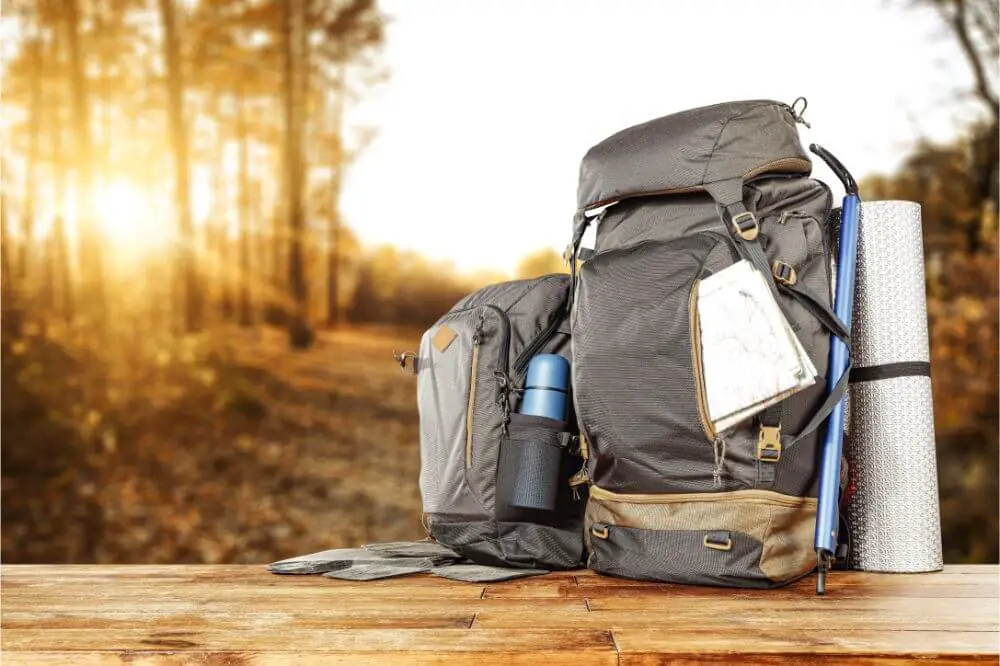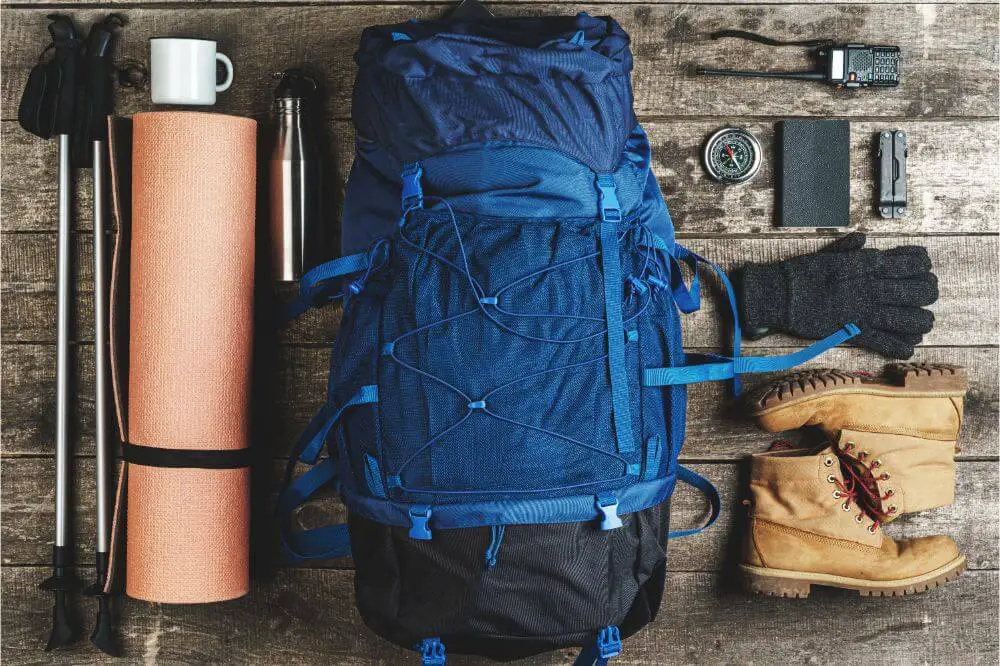Backpacks are great for heavier loads, but there are limits. So how much should a backpack weigh? Grown-ups, Kids, Commuters and Hikers – we’ve got you covered!
Once upon a time, backpacks had two main uses – hiking and carrying schoolbooks. There was some sense perhaps that backpacks weren’t quite right for a work environment.
Those days are long gone!
Backpacks are everywhere these days, and available in a wide range of styles to suite any environment. It’s not surprising really, hands-free convenience combined with better load management – whats not to love?
But a key question still remains …
How Much Should a Backpack Weigh?

There’s two ways to approach this – the simple one, and the more detailed one. Let’s start with the simple one:
The Short Answer: 15% of Your Body Weight
It’s the generally-accepted guideline from medical professionals that the weight of a well-adjusted (note that!) backpack should not exceed 10-20% of your own bodyweight, and 10-15% is often quoted as ideal for children (see for instance this UPMC source.)
So just to be really clear, that would imply someone who weighs 150 pounds should be carrying a pack that weighs a maximum of 15-30 pounds.
Obviously these figures includes the weight of the pack itself, so you should load up the pack and place it on your bathroom scales.
Pro Tip: It’s highly likely that your pack won’t balance well on a set of regular bathroom scales, which can lead to a false reading. That’s easy to fix. Weigh yourself first without the pack, then again with the pack on. The difference between the two is the loaded pack’s weight.
The More Complicated Answer
OK, so that’s it, right?
Well, no, not really. It’s a simple first pass answer, but it’s not everything
Ideal Weight For a Child’s Backpack
I’ll admit it – I’d assumed that kids these day’s wouldn’t be carrying around heavy textbooks the way I used to. After all, isn’t everything digital these days?
Turns out, no.
When I first realized how heavy my daughter’s backpack had become in middle-school (let alone high-school!) I got very concerned.
Heavy hardback textbooks, gym gear, a phone (yeah, I eventually decided she was mature enough to use one sensibly) – it all added up.

So – given that a child who is still growing is particularly vulnerable to heavy loads on their spine (see here for instance), I would naturally tend towards the lower range of 10-15% of bodyweight.
THE BIG DISCLAIMER: These are obviously general guidelines and your own situation may vary considerably. You should obviously discuss this with your child’s medical practitioner if you have any concerns.
The big thing to be aware of here is how you wear a backpack matters – a lot.
Make sure you have a conversation with your child about wearing the pack with the straps properly adjusted (not just slung over one shoulder).
That’s the single biggest thing you can do to ensure you’re getting the best benefit from the backpack form.
Oh, and obviously make sure the straps have comfortable padding too.
Ideal Weight For a Daily Commuter Backpack
Given that most commuter-style backpacks (whether for work or school) are frameless daypacks) it makes sense to stay toward the lower end of the range also.
After all, you’re getting more support than a messenger-style bag, but it’s not like you’ve got a sternum strap and an aluminum frame to distribute the load around – it’s all on your shoulders.
While the ideal weight for you will vary depending on your physical strength, not just your body weight, a lighter packing routine makes sense for a lighter bag.
Ideal Weight For a Hiking Backpack
Ah, this is where the weight starts getting piled on!

It’s not surprising that hiking packs tend to be the most heavily-loaded. After all, you’ve got to carry everything you need with you – whether you’re off on a simple day hike or long-term travel.
While it’s true that hiking backpacks are designed to help carry heavier loads for longer periods (they usually have an internal frame and a waist strap to help shift some of the weight off your shoulders) that doesn’t mean the laws of physics don’t apply!
Our advice – resist the temptation to pack the “just in case” items. The pack will only get heavier (or seem to anyway) towards the end of every day!
The good news? Modern backpacks are much lighter than they used to be, and so is the other equipment (from cookers to tents) that you’ll need to carry.
It’s possible these days to get a 70 liter pack that weighs only 2-6 pounds (1-3 kg) but still provides a lot of structure and support.
And every day, newer, lighter-weight equipment comes out. So, as your equipment needs replacing – remember to do your homework and find the best lightweight gear you can find.
Your body will thank you for this when you crest what you only *thought* was the last ridge…only to find your next base seems just as far away as it was at the beginning of your trek!
Pro Tip: Before heading out on your trek, fill your backpack with everything you think you need, and walk around your home or yard for an hour. You’ll be surprised how this concentrates the mind ….
Before You Go…
That’s a wrap – hopefully you’ve got a good idea of what you’re aiming for in ideal backpack weight now. But it doesn’t stop there! How you pack a hiking backpack in particular can make a huge difference to whether you enjoy your trek or curse the day you agreed to it! Check out our next article for more:
Related Articles
- Types Of Backpacks (for every occasion)
- What Are Backpacks Made Of?
- Great (Affordable) Alternatives to North Face Backpacks
All product names, logos, brands, and trademarks are the property of their respective owners
